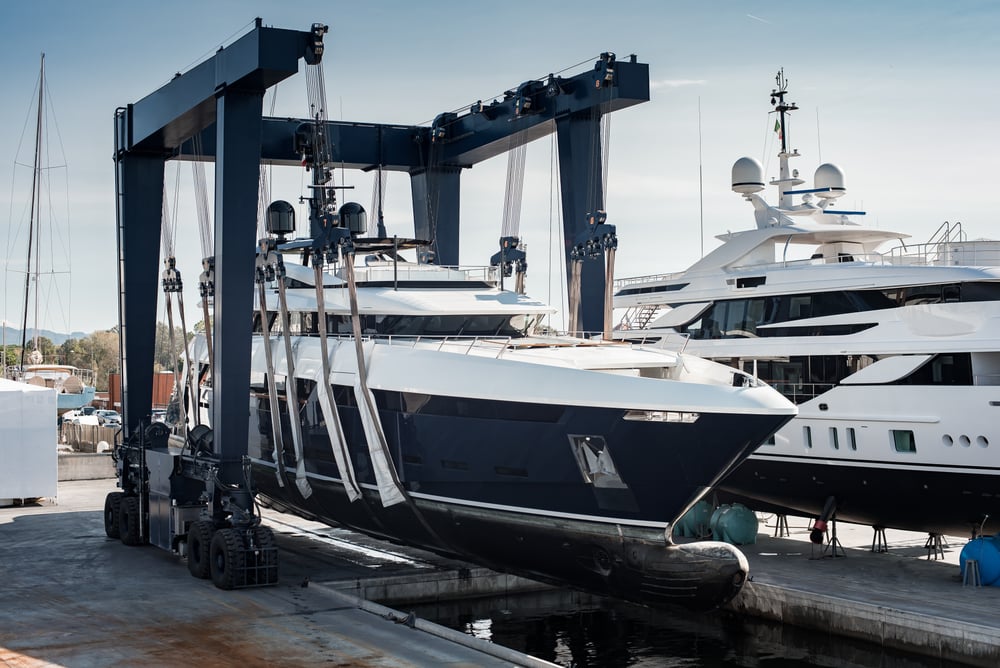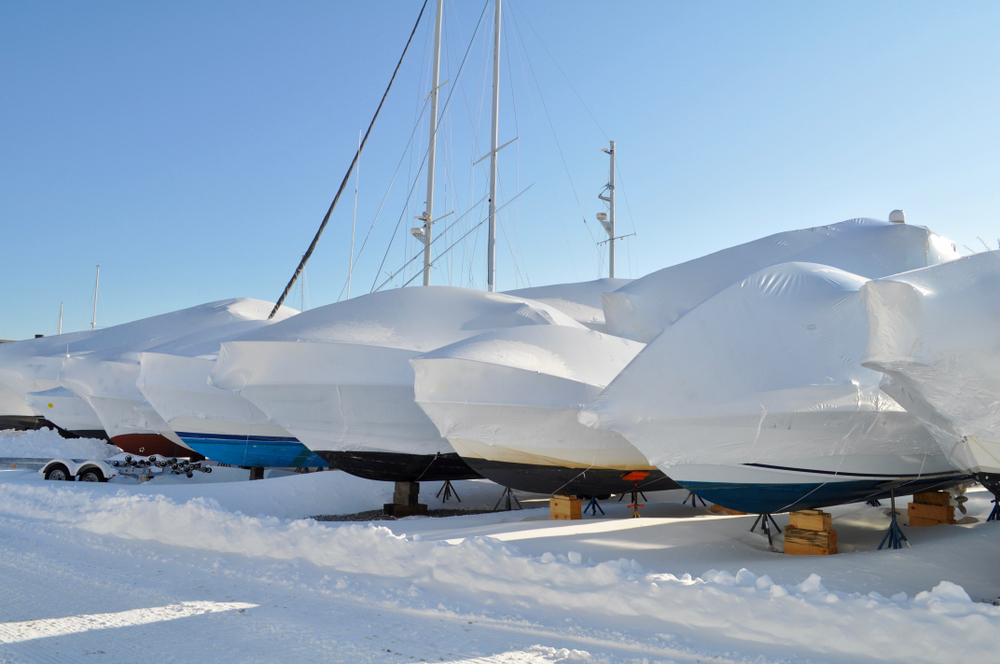Bert, my Red Fox English Labrador, loves the water just as much as I do. In my recent transition to “professional dog dad,” I have quickly...
Lucky for you, Dockwa has you covered! Below we’ve compiled a simple guide to follow ahead of your next haul out.

Check-in with the marina
Hauling at your home port is often the more straightforward option, but it's not always possible based on your boat’s size and the needed equipment. If you need to haul your boat at a different location, it’s essential to do your homework before identifying where and when scheduling enough time to move your boat to that spot for the haul out.
After deciding where to haul your boat, you need to determine when (if you tend to procrastinate). Then, be extra sure to keep yourself on schedule, giving the boatyard or marina as much time as possible to accommodate you. Remember that the yard's busy season is during late fall, when people pull their boats out for winter storage, and when people relaunch their vessels in the spring.
Be aware of the cost and work required to haul out
It’s important to know exactly how much it will set you back when hauling out your boat. Keep in mind that most boatyards charge by the foot and will often have a baseline fee built into the total cost. Some yards will utilize contracts, and if yours does, be sure to read it carefully and thoroughly to know what they will and will not include. Nothing is worse than coming across a hidden fee after signing on the dotted line. On the flip side, if your boatyard doesn't have you sign a contract, be sure to still ask as many questions as possible to have all the information you need.
Plan to be there when they lift your boat
It may be a no-brainer to some but plan to be present on the day of your boat’s haul out. This way, you can see firsthand the condition of the boat’s hull before it’s cleaned and power washed. Most yards will do this immediately, so the “fouling” (built-up plant and animal life on the boat’s bottom) doesn't set like concrete.

It's relatively common for the boat owner to drive their boat into the travel hoist pit, so be sure you have fenders on both sides of the vessel to protect the topsides. Always listen carefully to the instructions given to you by the yard staff, and don't forget to shut off the engines, air conditioners, and other equipment before hoisting the boat. Double-check that all the tanks of your craft are empty to avoid added strain on the boat’s structure when it’s lifted and then sitting on land.
Keep in mind that the slings used to haul out the boat can sometimes scratch its paint and varnish. To help avoid any damage, check with the yard to make sure they use soft muffs or plastic sleeves over the webbing on the straps.
Inspect your boat once on land
Once your boat is placed on blocks and supported by jack stands in the boatyard, make sure you tell the yard about any structural features they should keep in mind. You can store most boats the same way, but it’s always good to call out anything that could become damaged.
Then, inspect the jack stands, checking to ensure they have chains between them to prevent spreading (which could cause the boat to fall over). The attachment points of the chain to the stand should always be secure. If it’s is severely rusted, ask to have it replaced to avoid any accidents.
Once your boat is out of the water, owners should plan to give each part of the boat a full inspection, checking the propellers, rudders, transducers, and anything else usually submerged when out on the water. If anything could use a little TLC, now is the time to make needed updates.

Going into a haul out can be nerve-wracking, especially if you’re new to the process and have never seen a boat lifted from the water. Luckily with the proper knowledge and a great boatyard handling the heavy lifting, the whole process can be simple and stress-free.
One you're back in the water, you can rely on Dockwa to book your next slip or mooring and plan your next adventure!
Be sure to check out our other blog posts to get an inside look at our favorite destinations, marinas, liveaboards, and tips for boaters. Join the conversation on Flipboard, Facebook, Twitter, and Instagram.





